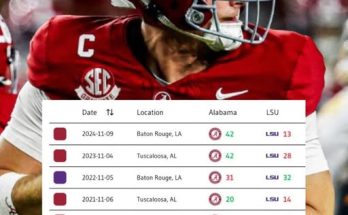Boston, Massachusetts — In a move that has sent shockwaves throughout Major League Baseball, Boston Red Sox third baseman Alex Bregman has reportedly opted out of his contract, officially setting the stage for his entrance into free agency. The news, which broke early Tuesday morning, comes as a major turning point for both Bregman and the Red Sox organization. Once considered a cornerstone of Boston’s infield and a driving force in their lineup, the 30-year-old star now prepares to test the open market — a decision that could reshape not only his own career but also the landscape of the league heading into the upcoming season.
For Boston, this marks the end of a high-profile tenure that began with optimism and championship ambitions. Bregman arrived in Boston as a proven winner, bringing with him both star power and postseason pedigree. In the years since his debut, he has built a reputation as one of the game’s most consistent and cerebral players — a fierce competitor whose leadership and work ethic set the tone in the clubhouse. His departure, however, leaves behind a glaring hole at third base and a looming question about the Red Sox’s direction as they attempt to rebuild a roster capable of contending in the ultra-competitive American League East.
Sources close to the organization suggest that Bregman’s decision was not impulsive. After several rounds of discussions with the team’s front office, it became increasingly apparent that the sides were far apart on a potential extension. Boston reportedly made multiple attempts to keep him in the fold, but the two-time All-Star and World Series champion was said to be seeking a long-term deal reflective of his market value and consistent performance. The Red Sox, on the other hand, appeared hesitant to commit significant years and dollars as they continue to reshape their payroll and invest in a younger core.
This divide eventually led Bregman to trigger his opt-out clause, making him one of the most coveted names in this winter’s free-agent class. League executives and insiders are already buzzing about which teams might pursue him. Given his blend of defensive prowess, offensive consistency, and veteran leadership, nearly a dozen clubs are expected to express interest. Teams such as the Los Angeles Dodgers, San Francisco Giants, New York Mets, and Chicago Cubs have all been floated as potential suitors — organizations that are known for their willingness to spend big when a star of Bregman’s caliber hits the market.
For Bregman, this is more than just a business decision — it’s an opportunity to define the next chapter of his career. After several seasons of ups and downs, he remains one of the most respected and polarizing figures in baseball. Critics have often questioned his durability and streaky offensive stretches, but supporters point to his elite defensive instincts, high baseball IQ, and clutch postseason performances as evidence of his enduring value. In 2024, Bregman delivered another solid campaign, hitting .276 with 23 home runs, 88 RBIs, and a .362 on-base percentage. While not the flashiest stat line of his career, those numbers once again underscored his dependability and knack for producing in key moments.
Throughout his time in Boston, Bregman became a central figure not just on the field but also in the city’s sports culture. Known for his fiery competitiveness and no-nonsense approach, he embraced the demanding environment of Fenway Park — a place where every play, every at-bat, and every decision is scrutinized by one of the most passionate fan bases in sports. His teammates often praised his leadership, calling him “the heartbeat of the clubhouse.” Younger players, particularly those coming up through the Red Sox system, frequently cited Bregman as a mentor who led by example, arriving early for extra work and holding himself to an uncompromising standard of excellence.
Still, the business side of the sport has a way of intruding even on the strongest bonds. For the Red Sox, losing Bregman represents a delicate balancing act. On one hand, they part ways with a veteran presence who was instrumental in maintaining stability during transitional years. On the other, his departure frees up significant payroll space — potentially giving the front office the flexibility to pursue younger talent or reinforce other critical areas, such as pitching depth and outfield production. Boston’s president of baseball operations has emphasized the importance of “strategic spending” in recent interviews, suggesting that the organization is more interested in sustainable competitiveness than short-term splashes.
Fans, however, are unlikely to see it that way. Many are already expressing frustration over social media, lamenting what they see as yet another example of the Red Sox allowing key players to walk away. The echoes of previous departures — including stars like Mookie Betts and Xander Bogaerts — are hard to ignore. Each time, the team justified the move as part of a broader plan to maintain flexibility and replenish the farm system, yet the results have been mixed. Now, with Bregman gone, the front office faces renewed scrutiny. Will this decision ultimately prove wise, or will it be another costly misstep for a franchise still chasing the success it once took for granted?



